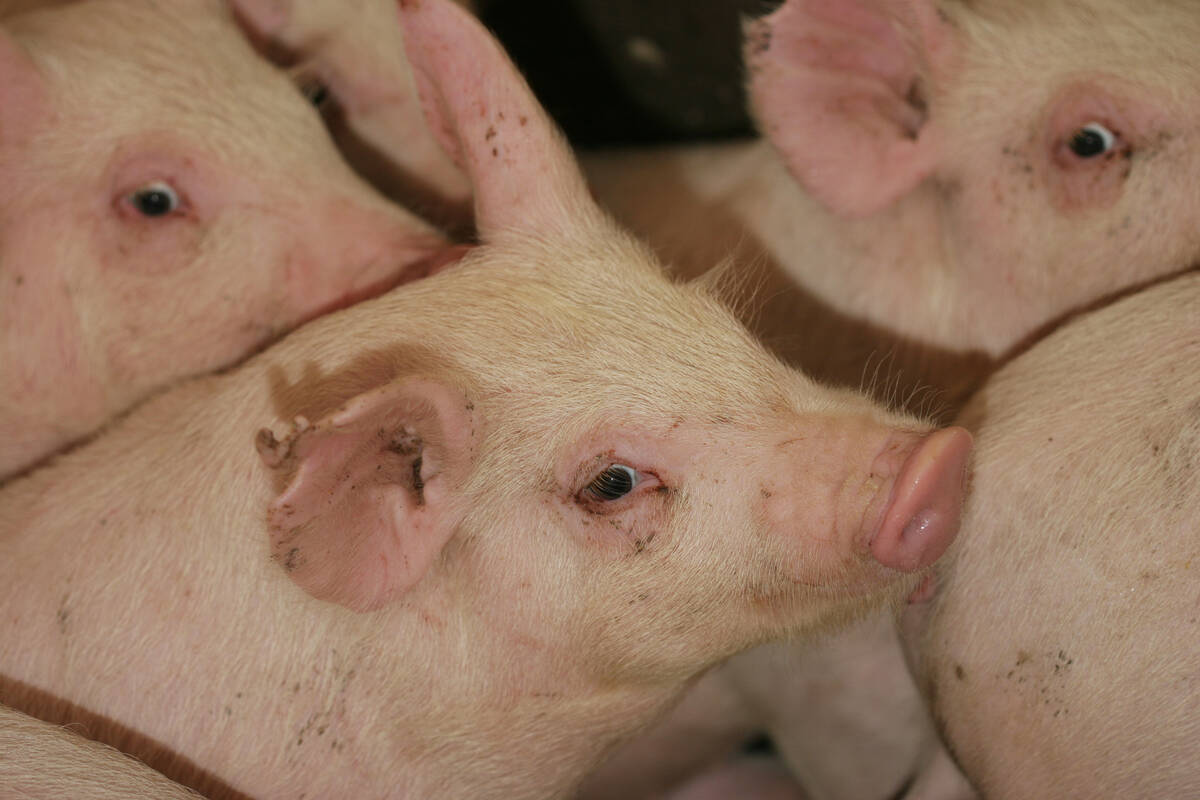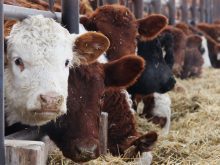Alberta and Ontario cattle producers have taken the first step toward a checkoff to support research and promotion projects on a national scale.
They have agreed to set up a national check-off agency as a pilot project and monitor its effectiveness.
The plan for the agency is being translated into a legal document, said Canadian Cattlemen’s Association president Dave Andrews from his ranch near Bow City, Alta.
The two provinces will provide $1 per animal sold to the agency. The fee is non-refundable.
The agency then allocates money for beef promotions, market development and research rather than the CCA handling these duties. Spending is based on recommendations from workshops sponsored by the CCA.
Read Also

The Western Producer Livestock Report – September 25, 2025
The U.S. national live price average for barrows and gilts was $81.21 Sept. 17. It was $78.37 Sept. 9. U.S. hogs averaged $106.71 on a carcass basis Sept. 17, up from $106.10 Sept. 9.
Each province will still be assessed a fee for the association and will retain their funding for provincial activities.
“It won’t change anything for Alberta or Ontario,” Andrews said. “This is money they are already spending on promotion and research. It is not an add-on checkoff.”
The CCA also hopes to start a checkoff on imported animals, but that will have to wait until more provinces join.
“One of the principal reasons for doing this is to apply the checkoff to imports,” said Andrews.
Alberta and Ontario already have provincial checkoffs in place. The Alberta Cattle Commission collects $1.50 levy and the Ontario Cattlemen’s Association charges $2.25 on every animal sold in the province.
Each province will contribute $1 per head to the national check-off fund. In the 1996 fiscal year Alberta collected $5.8 million on 3.8 million head sold. The largest share of that money is directed to national promotion and the CCA. A national beef research council will likely be formed.
British Columbia and Saskatchewan are expected to come on side by the end of 1997.
“We’ll have to be flexible in terms of how we collect the national checkoff in provinces that don’t have a mandatory, non-refundable checkoff in place like in Manitoba,” said Andrews.
Cliff McIsaac, head of the national farm products council in Ottawa, said cattle producers have a strong structure across the country to make collection easier.
“They have a structure that allows them to approach it in a much better position than many others are,” said McIsaac.
The national checkoff legislation was passed in May 1992. It permits any agricultural commodity group to collect a compulsory levy on domestic and imported products for research and promotion activities.
Each province has its own legislation regarding checkoffs and the agreement to support the checkoff must come from farmers, not government.
Other attempts
Other groups have attempted to start a national levy but met with little success.
Raspberry growers in British Columbia turned down a national checkoff in a recent producer vote, said Dave Matviw, of the B.C. agriculture department.
He said many commodity groups are interested but they haven’t been able to make it work.
Many provincial commodity groups have some form of levy on producers but no one has signed on to a national program for wider promotion and research activities.
The legislation permits the charges but it is not harmonized among the provinces so it’s difficult for various groups to make it work.















